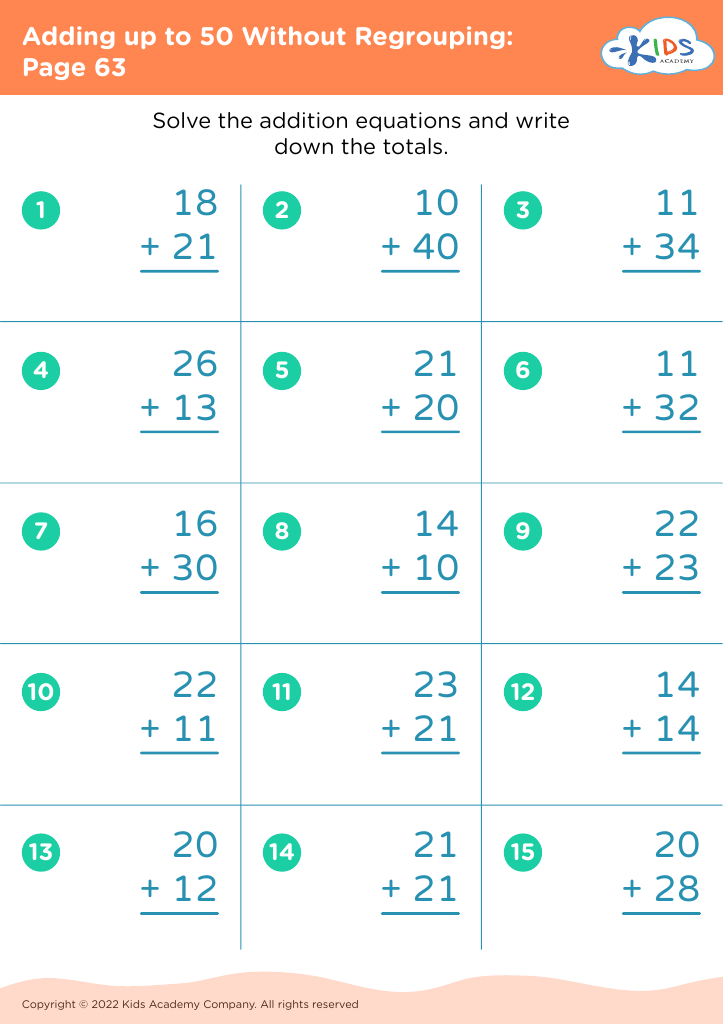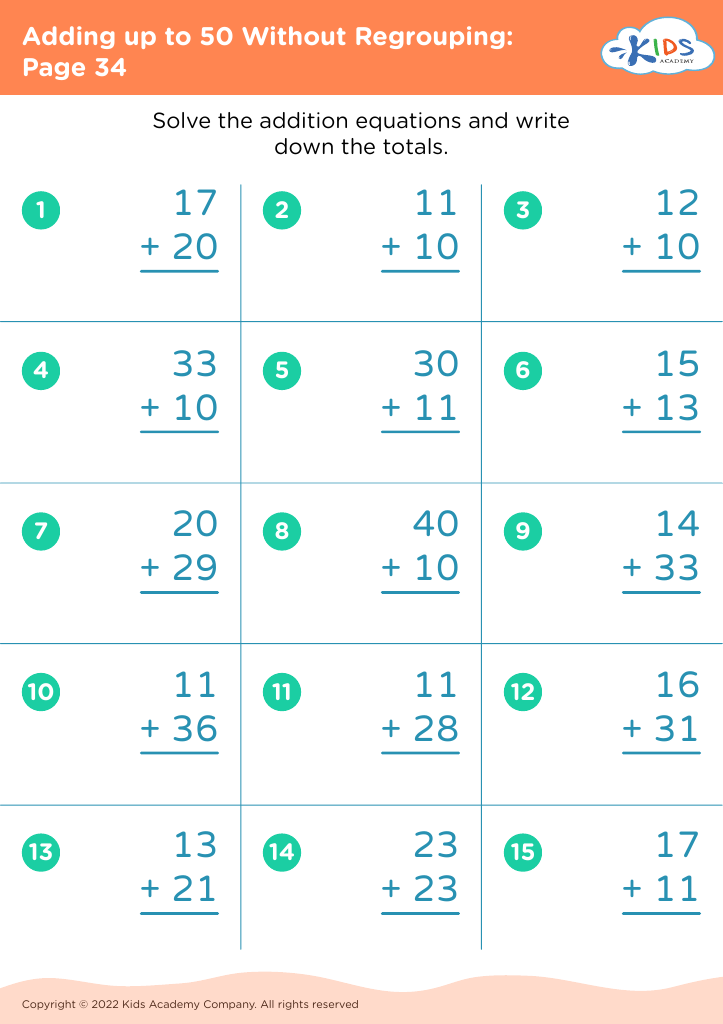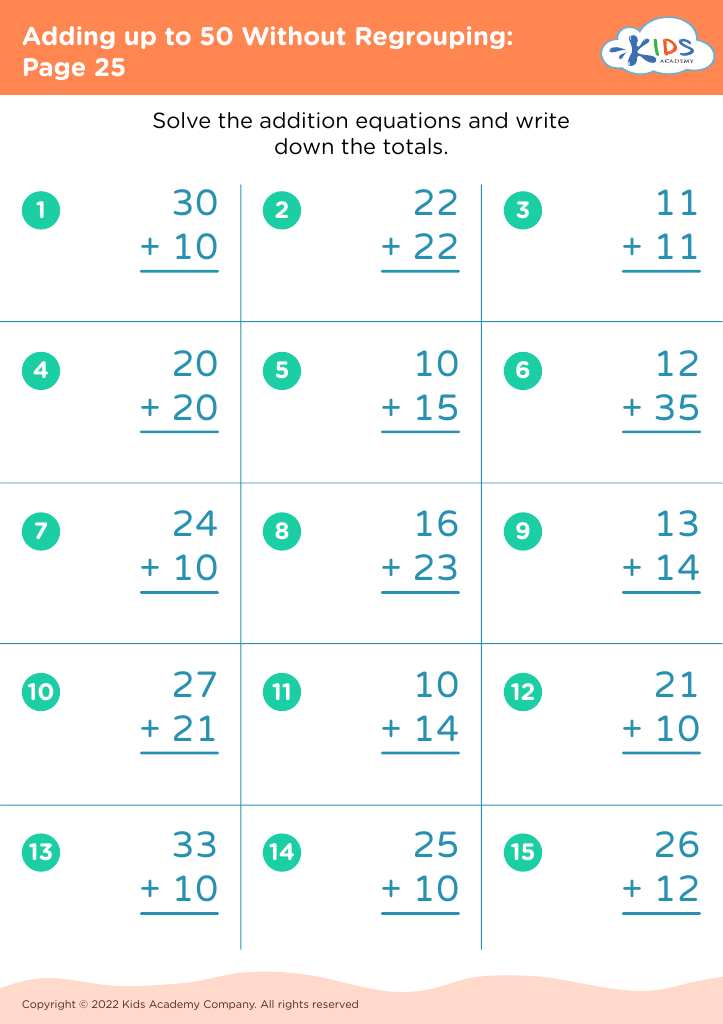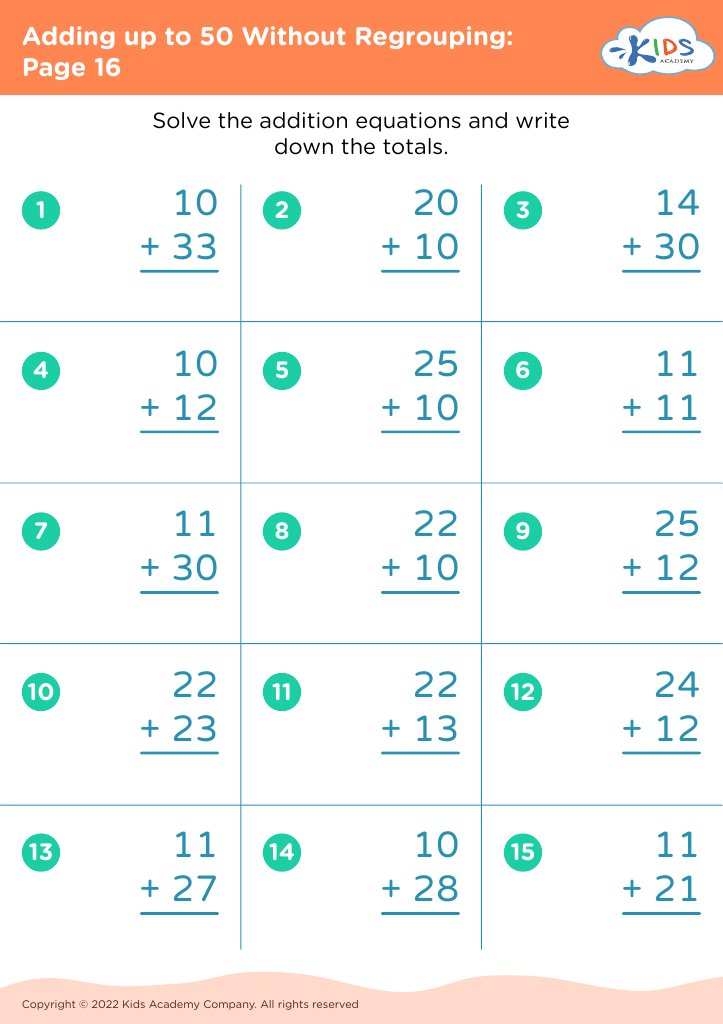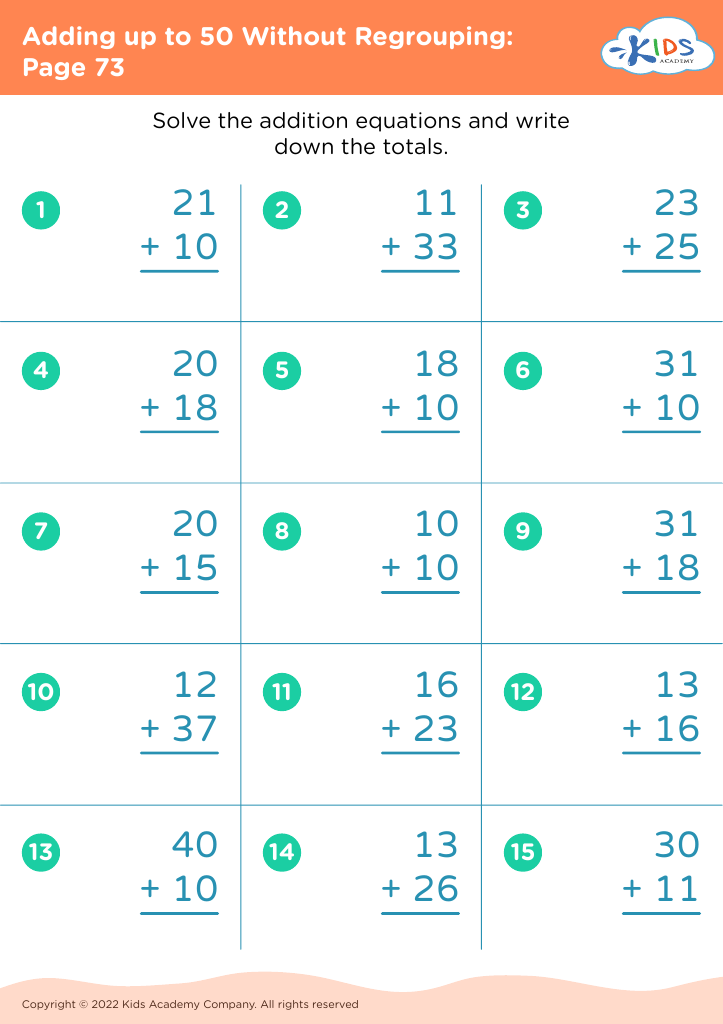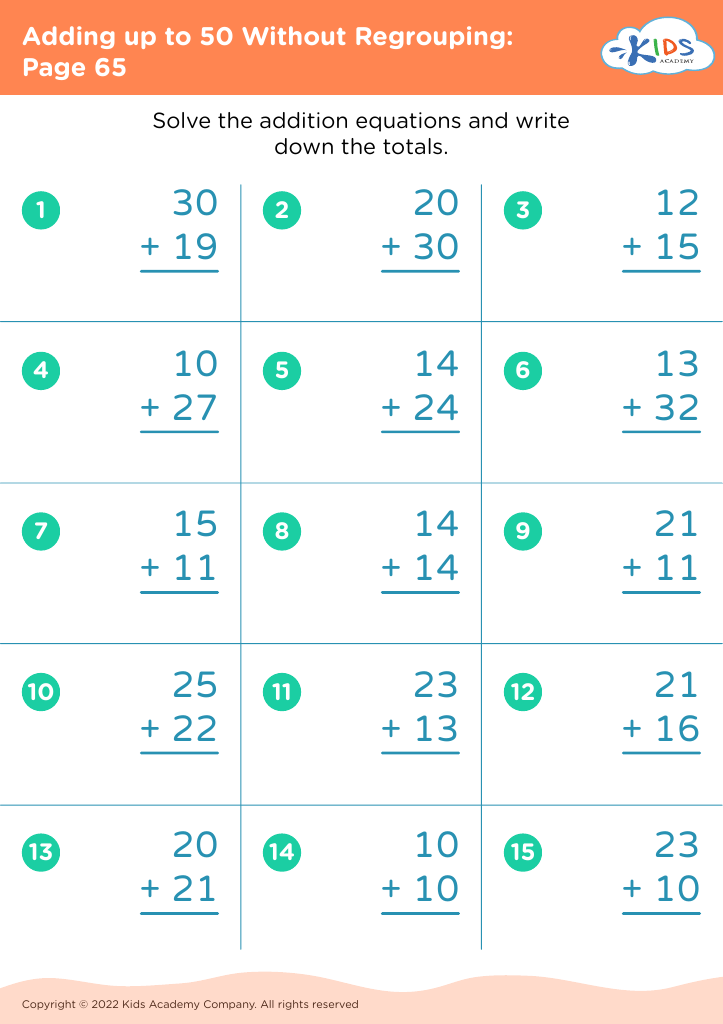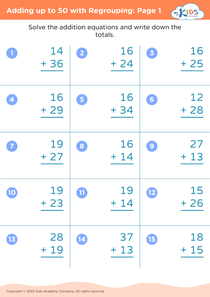Fraction simplification Adding up to 50 Without Regrouping Worksheets for Ages 4-7
7 filtered results
-
From - To
Explore our engaging "Fraction Simplification Adding Up to 50 Without Regrouping Worksheets," specially designed for children aged 4-7. These interactive worksheets focus on foundational math skills while introducing the concept of simplifying fractions in a fun and approachable way. Young learners will practice addition up to 50 without regrouping, building their confidence and increasing their understanding of fractions through colorful, age-appropriate illustrations. Perfect for classroom use or at-home learning, these worksheets provide essential practice to reinforce mathematical concepts, promote critical thinking, and make learning enjoyable. Start this mathematical journey today and watch your child's skills flourish!
Fraction simplification and basic arithmetic, such as adding up to 50 without regrouping, are foundational skills that young learners (ages 4-7) need to grasp for various reasons. Understanding fractions helps children make sense of parts and wholes, which is crucial in daily life—whether they are sharing snacks, understanding time, or measuring ingredients in cooking. Teaching them to simplify fractions builds their confidence in recognizing that numbers can be reduced, thereby enhancing their problem-solving skills.
On the other hand, mastering addition without regrouping lays the groundwork for more complex math concepts later. By learning to add numbers up to 50 without regrouping, young students develop a secure numerical foundation, mental arithmetic skills, and number sense, which are vital for future operations including regrouping.
Moreover, engaging parents and teachers in these concepts promotes collaborative learning. Parents can reinforce these principles at home, while teachers can develop creatively tailored lessons to make learning exciting. By caring about these basic math skills, we help ignite a lifelong love for numbers in children, cultivating critical thinking and analytical skills they will rely on throughout their education and into adulthood. Fostering these abilities early can lead to greater academic success and confidence in mathematics as they grow.
